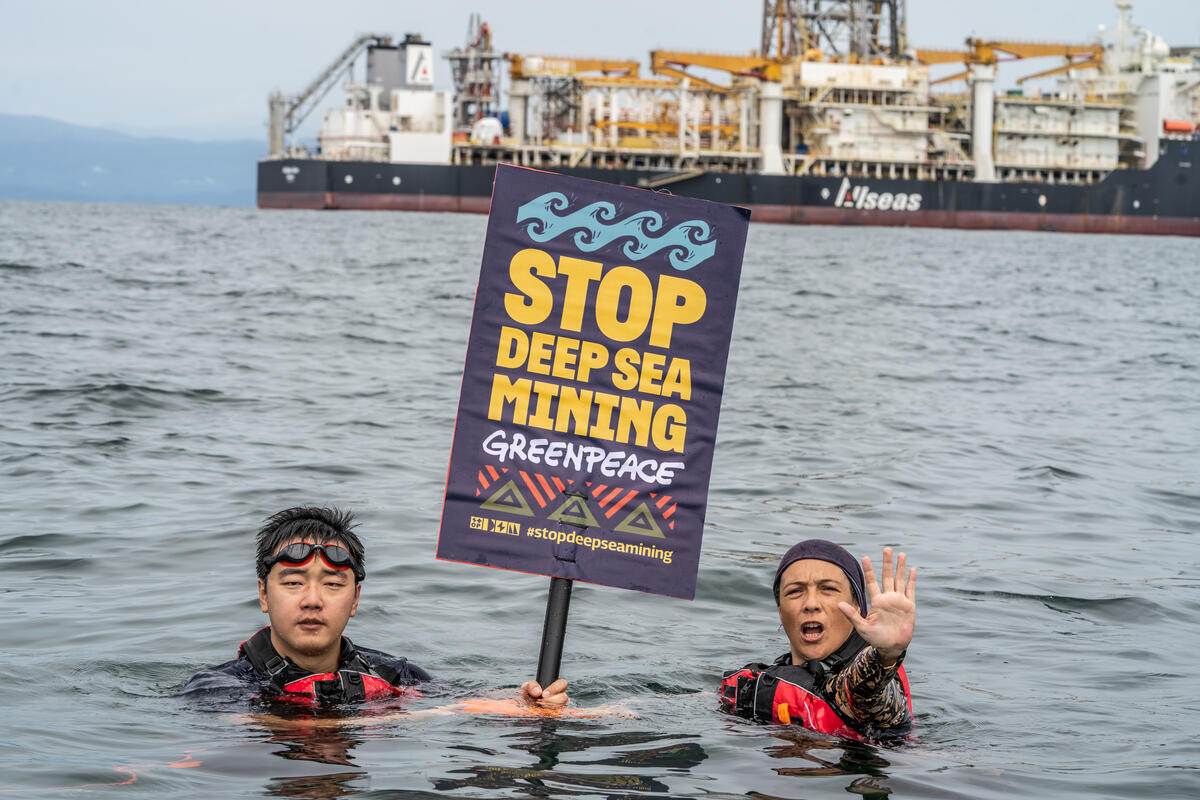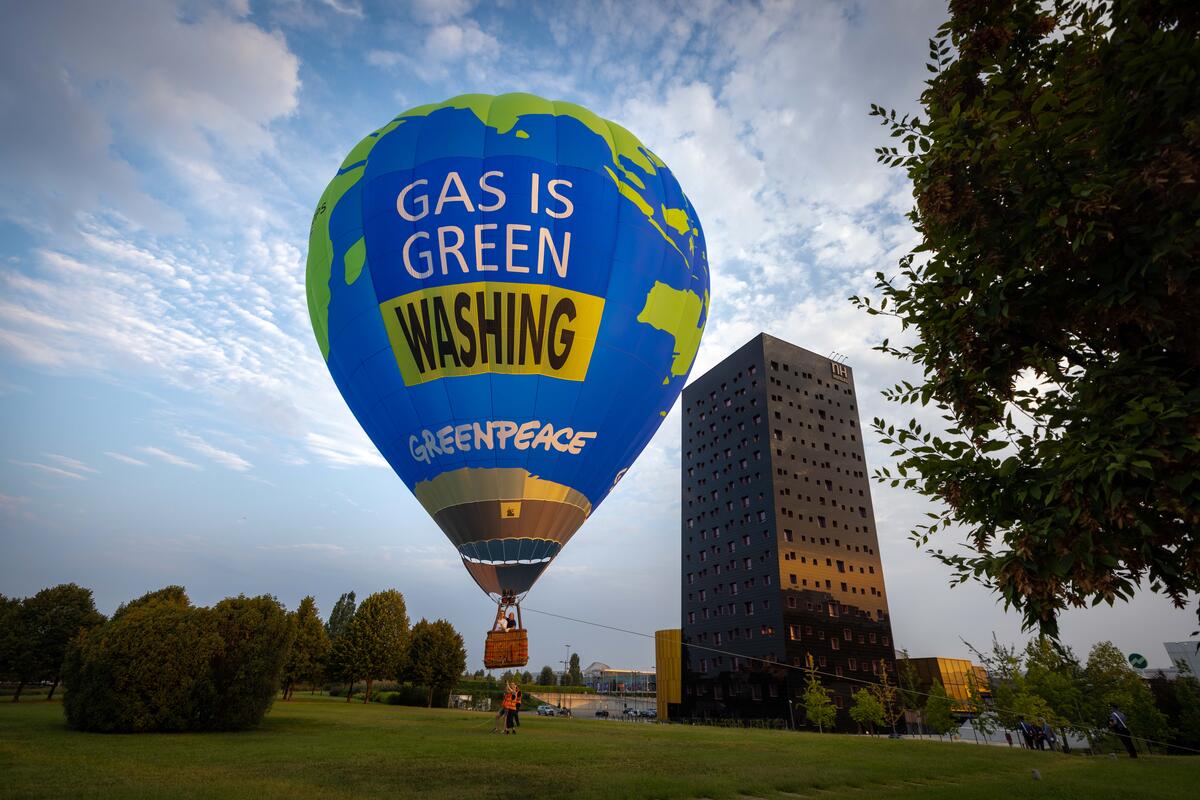Kuala Lumpur, 15 November 2025 — Greenpeace Malaysia and Save Malaysia Stop Lynas (SMSL) today held a joint press conference and media briefing to highlight the latest developments surrounding Lynas’ operations and the rare earth industry in Malaysia. The groups also expressed deep concern over the Malaysian government’s continued leniency toward Lynas and questioned the scientific and regulatory basis for the possible renewal of its Full Operating Stage Licence (FOSL) in March 2026.
Both organisations voiced concern that Malaysia risks becoming a pollution hub for rare earth processing, as industry and government continue to promote the sector without fully addressing the long-term impacts of radioactive waste, environmental degradation, and public accountability. The Lynas Advanced Materials Plant (LAMP) in Gebeng, Kuantan, is one of the world’s largest rare earth processing facilities outside China. Its “Cracking and Leaching” process generates a primary waste known as Water Leach Purification (WLP) residue — a radioactive by-product containing thorium with a half-life of 14 billion years.
The government’s justification for allowing Lynas to continue operating until 2026 remains unfounded. “Claims that Lynas can separate thorium from its waste and make it non-radioactive are scientifically and technically unsound. There is no published evidence or transparent data to support these assertions. Even Nuklear Malaysia has confirmed that no such thorium extraction project ever materialised, despite allocated grants”, said SMSL Chairperson Tan Bun Teet.
The groups emphasised that isolating thorium from the WLP, which contains an average of 1,758 parts per million thorium, is both economically and technically impractical. Attempts to remove thorium from the lanthanide concentrate feedstock would disrupt rare earth extraction itself — making the government’s current justification for renewal misleading and unsupported by credible science.
Both organisations stated that the current crisis reflects years of weak regulation, shifting policies, and contradictory narratives. Lynas’s 2012 licence required the company to remove its waste from Malaysia if necessary, yet that commitment was steadily eroded through multiple renewals and policy reversals. In 2014, Lynas proposed reusing its radioactive waste as industrial by-products, but the government rejected the plan in 2018 over safety concerns. A 2019 directive then required the company to relocate its waste-producing Cracking and Leaching operations by 2023, only for the decision to be abruptly overturned in October 2023, extending its licence until 2026.
During this period, Lynas repeatedly shifted its narrative; from claiming its waste could be safely recycled to later asserting it was harmless enough for municipal disposal — both dismissed by experts and never validated by independent science. “Despite years of public resistance and clear policy conditions, Lynas continues to operate with limited accountability and no proven waste solution. Malaysia deserves a clean, safe, and just pathway for its economy and not one built on radioactive waste and broken promises,” said Greenpeace Malaysia Campaign Lead Heng Kiah Chun.
Together, Greenpeace Malaysia and SMSL urge the government to reject Lynas’s licence renewal in 2026 and instead enforce the original commitment for Lynas to relocate its Cracking and Leaching operations to Western Australia. They also call for a full, transparent, and independent scientific review of the environmental and health impacts arising from Lynas’s waste management, and for real-time monitoring data to be made publicly accessible. The organisations reiterated their long-standing demand that Lynas be held accountable for its 2012 undertaking to remove its radioactive waste from Malaysia and return it to its origin site at Mt Weld in Western Australia, where it can be securely contained under proper geological conditions.
ENDS
Related Posts
-

2025 Year Wrapped in Momentum
2025 was a year of steady progress. This is a look back at how people power carried momentum forward for people and planet.
-

Why fossil gas is a bad deal for Southeast Asia
Fossil gas is often described as a cleaner and safer option for our region. But when you look closely at the evidence.
-

Understanding fossil gas, methane, and LNG
Fossil gas is often surrounded by confusing technical terms. This glossary breaks down the key concepts in clear and simple language, so you can understand exactly why fossil gas is…
